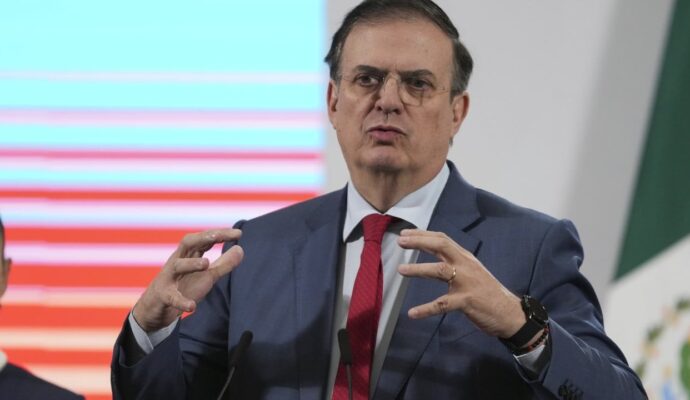According to state news agency Xinhua, Xi hailed Beijing’s ties with Hanoi as “comrades-plus-brothers” and said an agreement to build a “community with a shared future” – a commitment made during the Chinese president’s state visit to Vietnam in December – “opened a new chapter” in bilateral relations.
In the face of “profound and complex changes” to the existing world order, “it is in the common interest of China and Vietnam to safeguard the socialist system and maintain national stability and development”, Xi was quoted as telling Hue.
“Both sides should forge a strong sense of a China-Vietnam community with a shared future and with a high level of mutual trust, consolidate [its] foundation … with high-quality cooperation, and promote [its] construction … with a high degree of political wisdom,” he said.
Hue, who was among the four “pillars” of the leadership in Vietnam along with the chief of the Communist Party, the president and the prime minister, was quoted by the Chinese readout as pledging to treat China as his country’s top priority.
According to the Chinese statement, he said Hanoi would stick to an independent and autonomous foreign policy, a code term favoured by Beijing to suggest distancing from the US and its allies.
Zhang Mingliang, a regional affairs specialist at Jinan University in Guangzhou, said Hue was accompanied by an entourage of senior Vietnamese officials, underlining the importance both Beijing and Hanoi attached to relations, especially in the midst of escalating regional tensions.
According to Zhang, Beijing seemed to have placed special emphasis on the building of a community with a shared future, an agreement Xi reached with Vietnam’s top leader, Nguyen Phu Trong, last year, with the Chinese readout mentioning it seven times.
He said Xi’s remarks on using political wisdom to deal with bilateral differences were clearly a “pointed message” to Hanoi amid Beijing’s concerns about Vietnam’s warming ties with the US, Japan, Australia and other US allies.
“The visit is also an example of Vietnam’s ‘bamboo diplomacy’ to strike a delicate balance between major powers, against the backdrop of heightened tensions in the South China Sea,” Zhang said.
Those tensions have risen with the quadrilateral military exercises and in the lead-up to this week’s trilateral summit in Washington with Philippine President Ferdinand Marcos Jnr, Biden and Japanese Prime Minister Fumio Kishida, Zhang said.
“Vietnam knows how to deal with China with its pragmatic approach,” he said.
In an interview published on Sunday by Vietnam’s official news agency VNA, Chinese ambassador to Hanoi Xiong Bo admitted that “both opportunities and challenges exist” in bilateral ties.
“There cannot be opportunities without challenges. I think the most outstanding feature of China-Vietnam relations is that opportunities outweigh challenges by far, and through the efforts of both sides, some challenges can be effectively managed and transformed into opportunities for cooperation under certain conditions,” Xiong was quoted as saying.
Xiong also said both sides basically achieved the goal of “better management and control of differences” during Xi’s Hanoi visit, an achievement that was “extremely rare”.
Vietnam political star’s downfall shocks nation: ‘who will be next president?’
Vietnam political star’s downfall shocks nation: ‘who will be next president?’
Chinese foreign ministry spokesman Wang Wenbin expressed concerns on March 11 about Vietnam’s elevation of ties with Australia during a visit by Prime Minister Pham Minh Chinh.
Carl Thayer, emeritus professor at the University of New South Wales in Australia and a Southeast Asia specialist, said Wang’s comments were “a sign that tensions have arisen in the South China Sea after Xi’s visit”.
Thayer noted Hanoi “has been more critical of China in recent public statements” following the rising tensions between Beijing and Manila.
The South China Sea is known as the East Sea in Vietnam.



